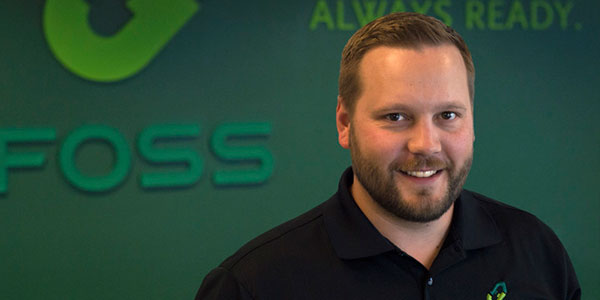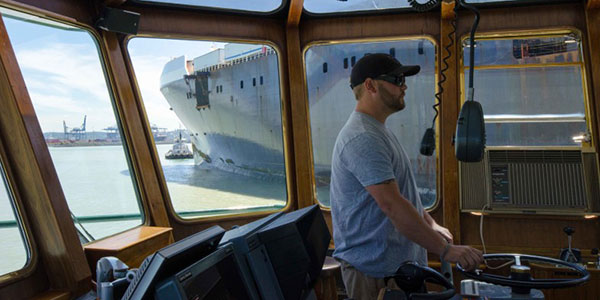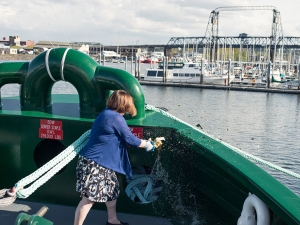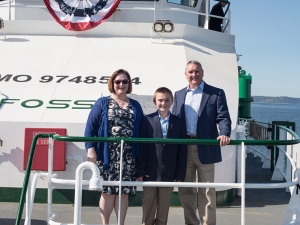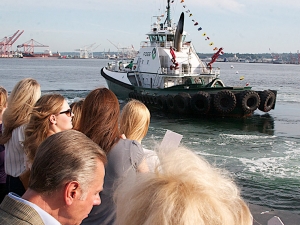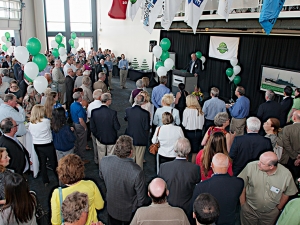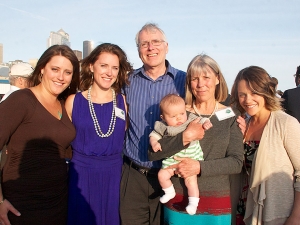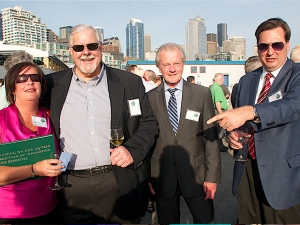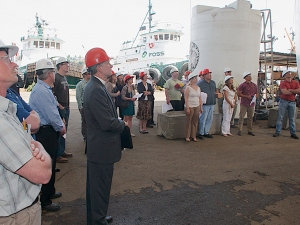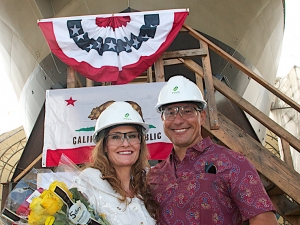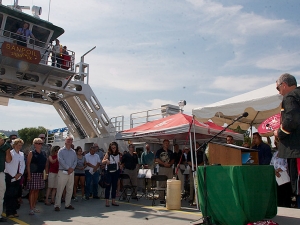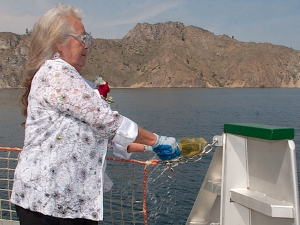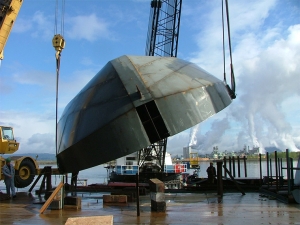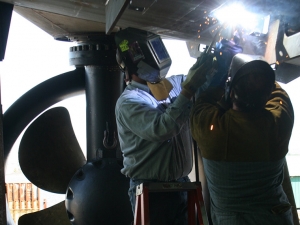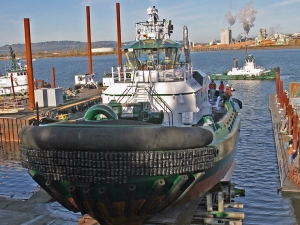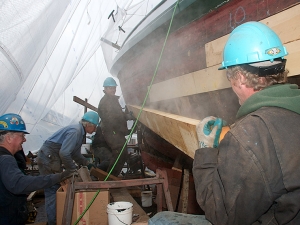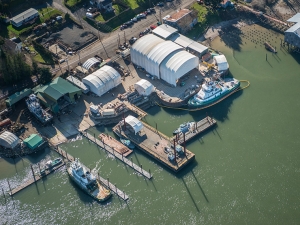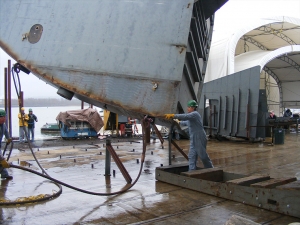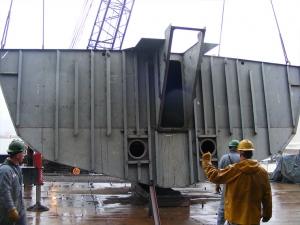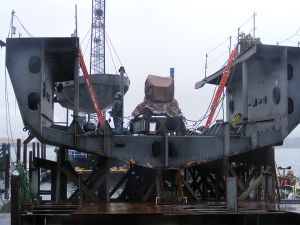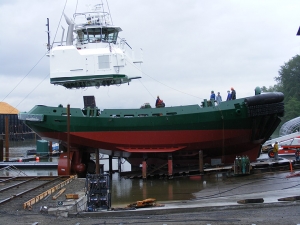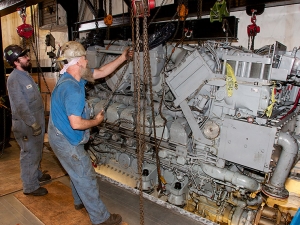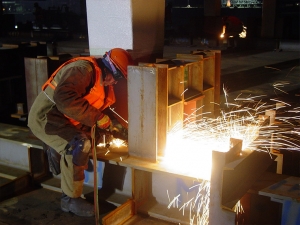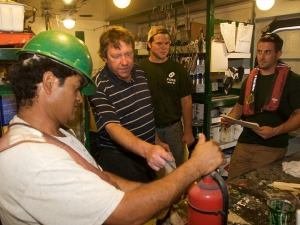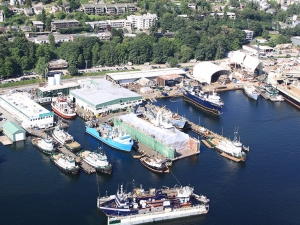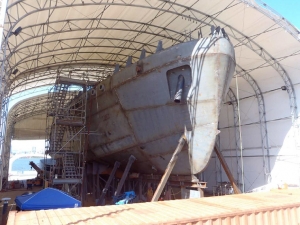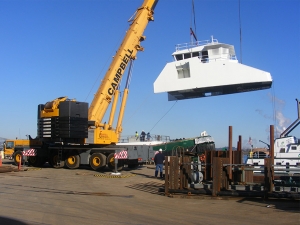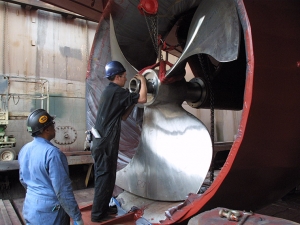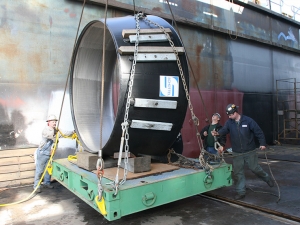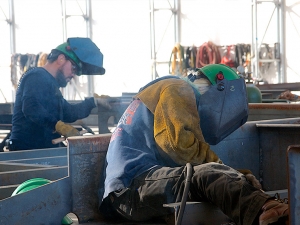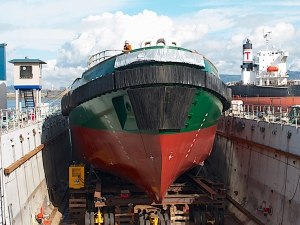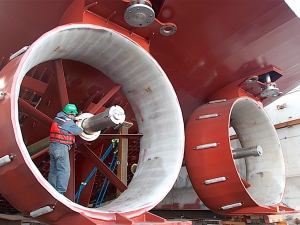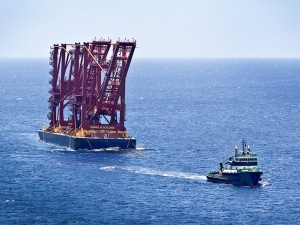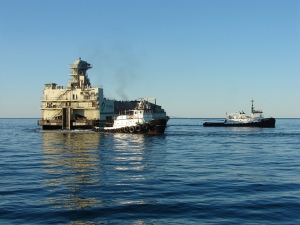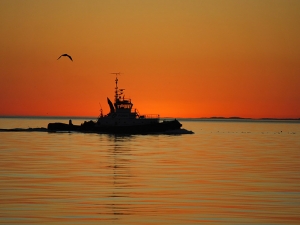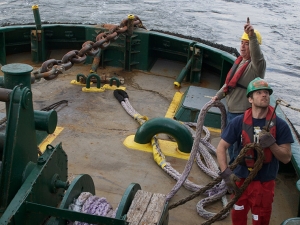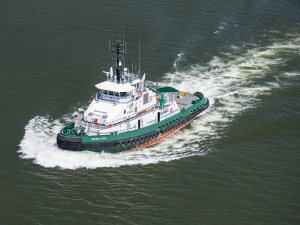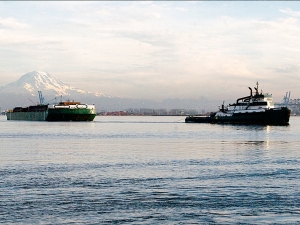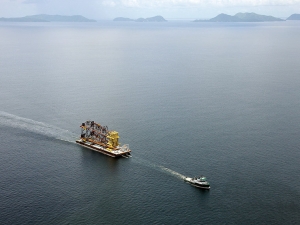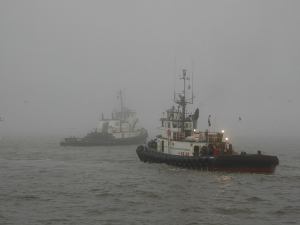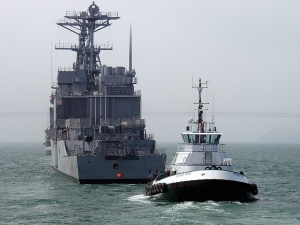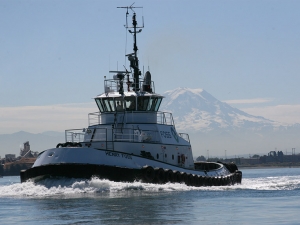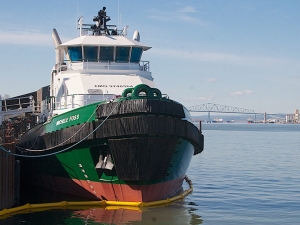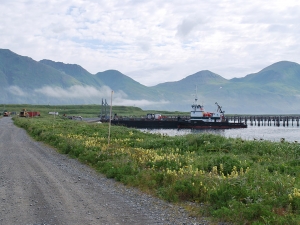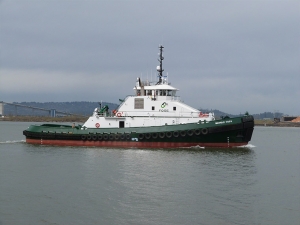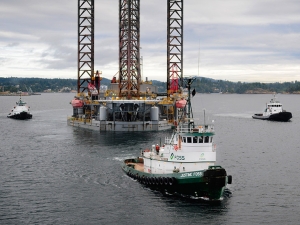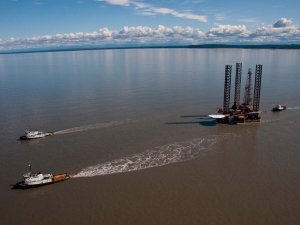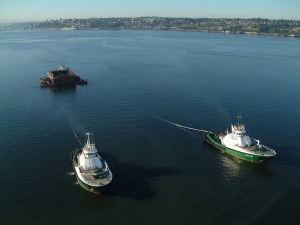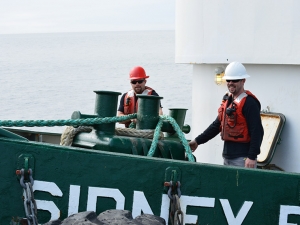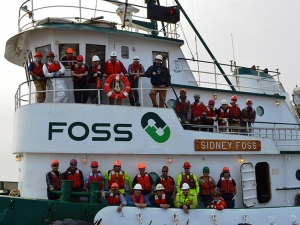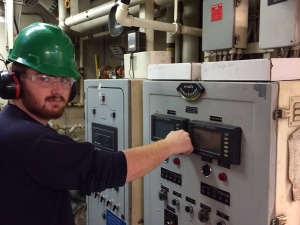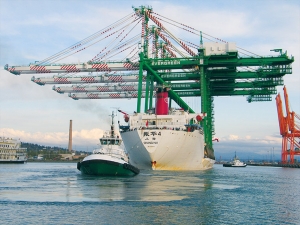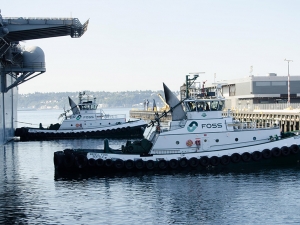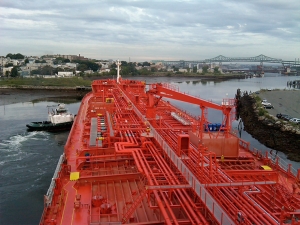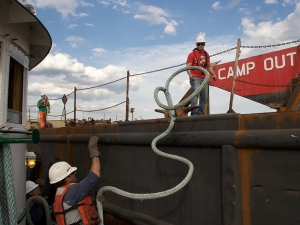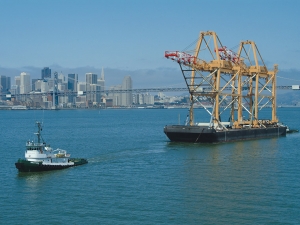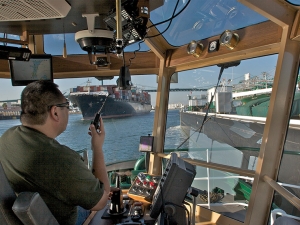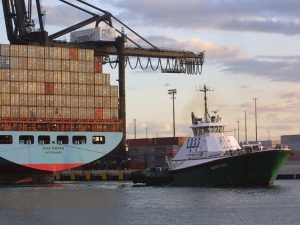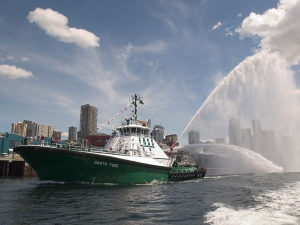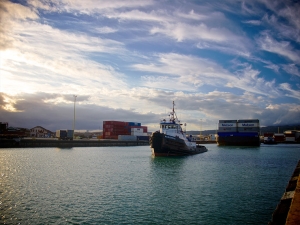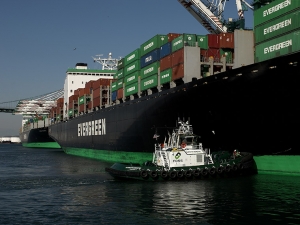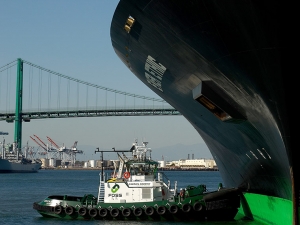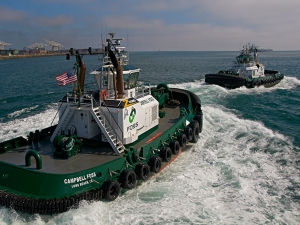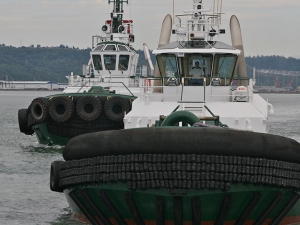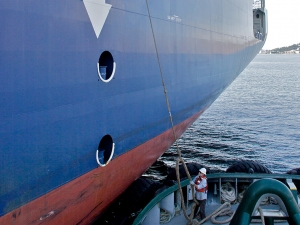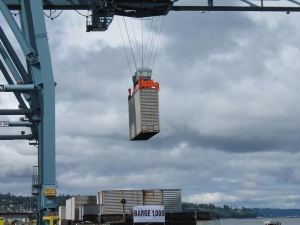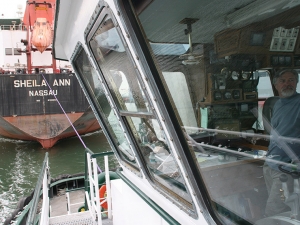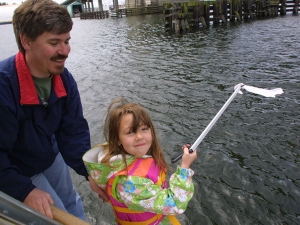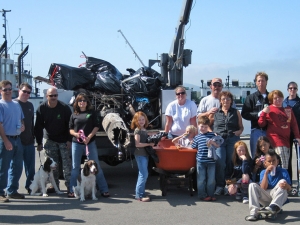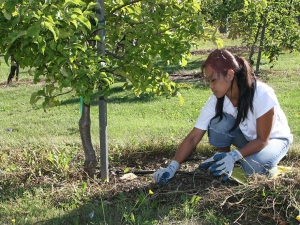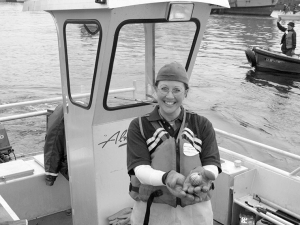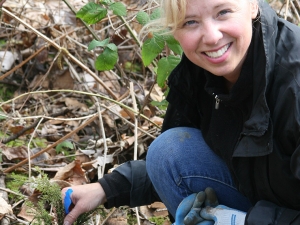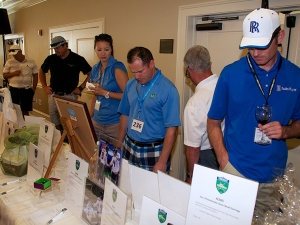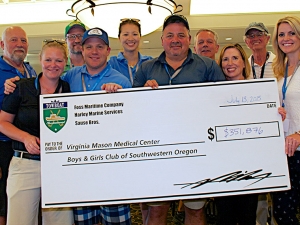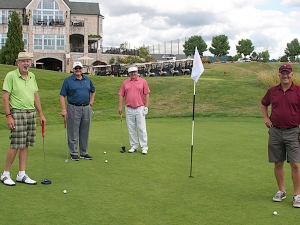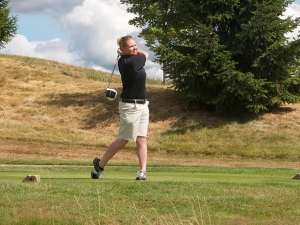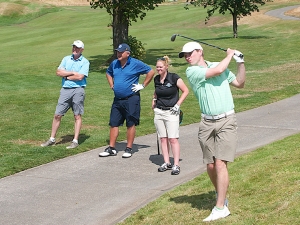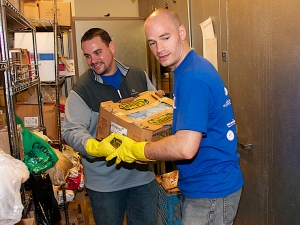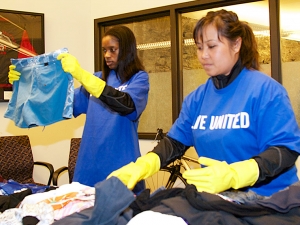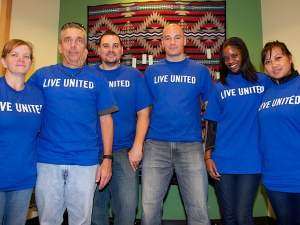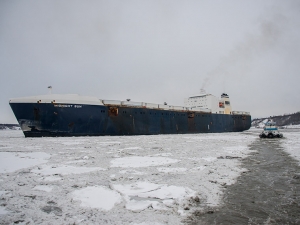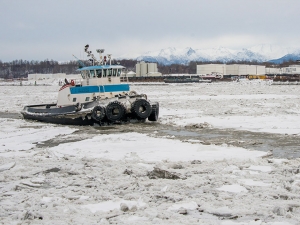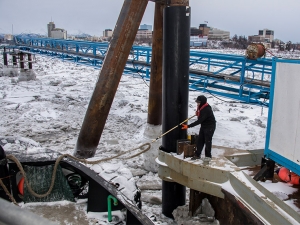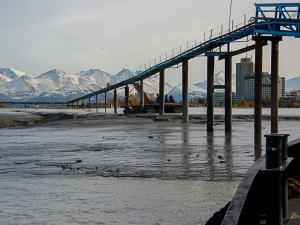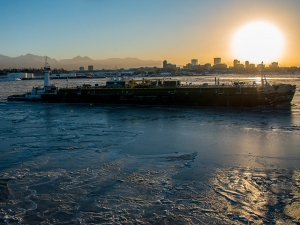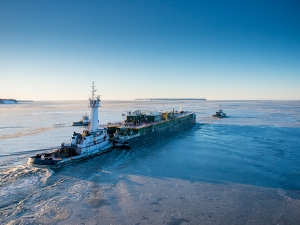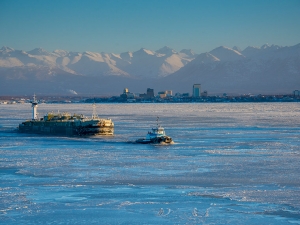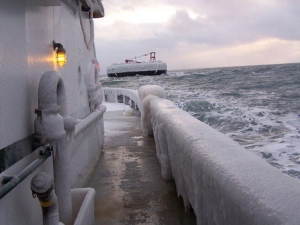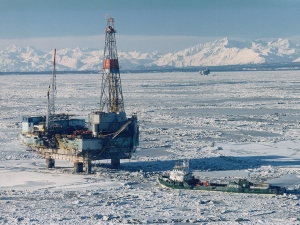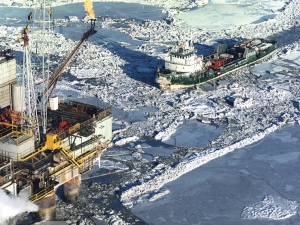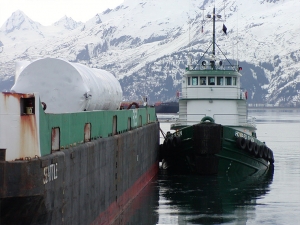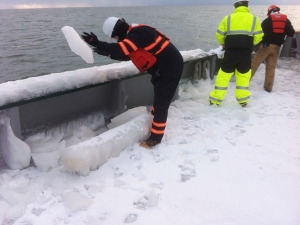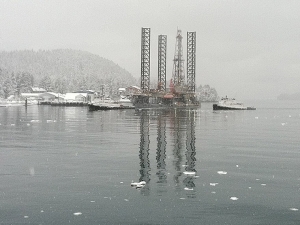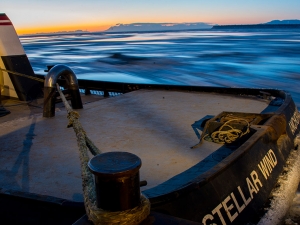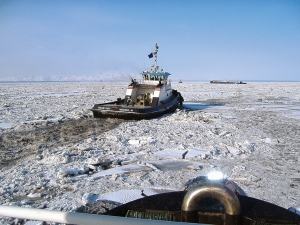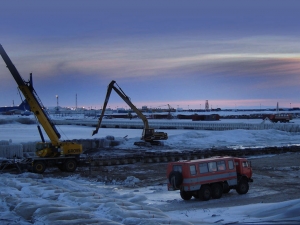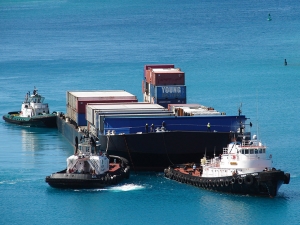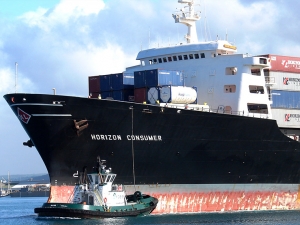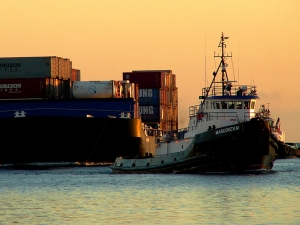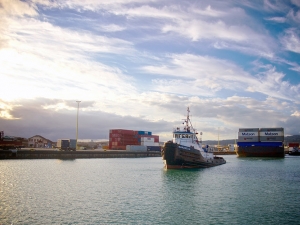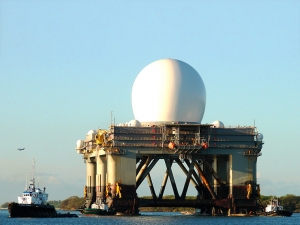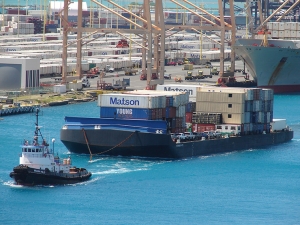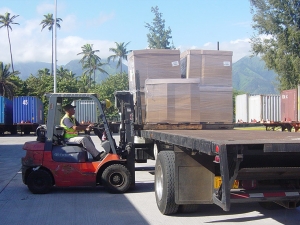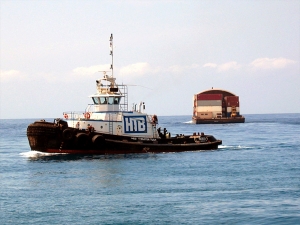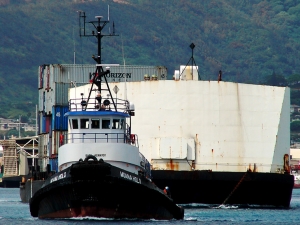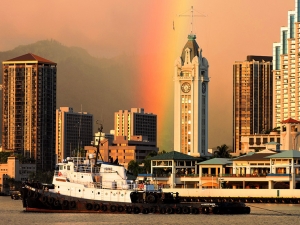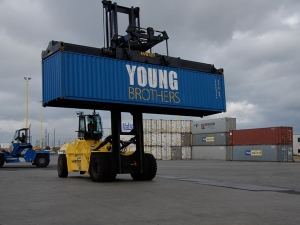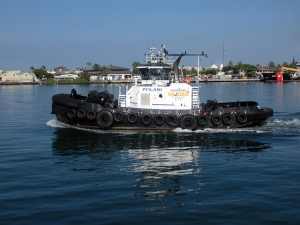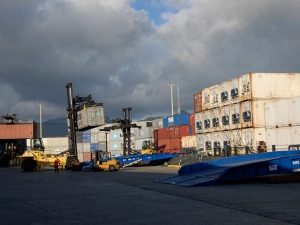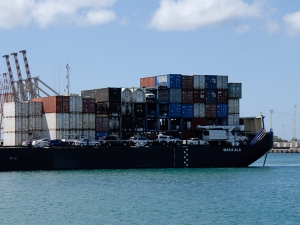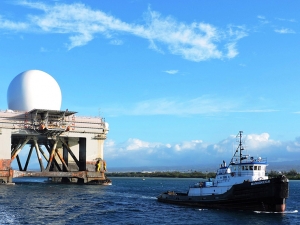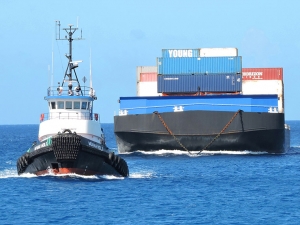Pete Roney, Project Operations
Foss Captain Adjusting to New Role on Land
After more than a decade at sea, Pete Roney remains focused on mariner safety as a Project Operations Specialist
Foss Maritime Captain Pete Roney’s job includes, among other things, managing the equipment and personnel necessary to ensure that help is just a barge away.Roney sidebar
“We’re here as Foss to make sure everything is prepared for response, and if activated it goes as smoothly and safely as possible,” he said.
Roney was born and raised in Anacortes, a port city north of Seattle with a well-established maritime tradition. He spent the summers of his high school years as a deckhand on a Seattle-moored salmon-fishing boat before graduating and switching to the pollock fishery.
“I didn’t want to be one of those old fisherman,” he said. “I was still very interested in the maritime industry – I knew that’s where I wanted to be.”
A job lead from a family attending the Montessori preschool owned by Roney’s mother led him to Foss. On his first trip in 2005, he spent 187 days at sea.
“I was working on the Sakhalin sealift project, transporting equipment between South Korea and Sakhalin Island, Russia. There were seven of us on a boat that was 150-feet long. Six months later, it felt more like 20 feet,” he joked. “That was a long trip.”
So long, in fact, that he accumulated more than two months of vacation days, which he spent backpacking in New Zealand with a friend. Upon returning to Seattle, he earned his initial 100-ton Captain’s license and began work on subsequent trips, including a two-month stint transporting rail cars via the CN Aqua Train barge from Canada to Alaska, and another two months on the Sakhalin project. Roney said he enjoyed the work, but wanted to aim higher.
“I didn’t want to be a deckhand forever,” he said. “I really believe that in anything anybody chooses to do, they should go as high as they can.”
Roney earned his Chief Mate’s License in 2011 and was later named Second Mate of the ocean-going tug Corbin Foss. He set his sights on first becoming Captain, and then, ultimately, a Marine Pilot. Roney earned his Master (Captain’s) License during the summer of 2014 at the age of 30 and was subsequently named a Captain of the 100-foot harbor tug Wedell Foss, making him among the company’s youngest.
“For me, it was never necessarily a status thing,” he said. “I just always pursued the next step, the next-best job. Otherwise, I just felt like I wasn’t moving forward with my life.”
But Roney also got married that summer and began thinking about the amount of time he was spending at sea.
“Once you’re a Captain, it takes another five to eight years to become a Pilot,” he explained. “I started thinking about working ashore and using my sailing experience to support a management position. Previously, I had not thought much about working in the office, but I had been working two weeks on, two weeks off and I realized suddenly that I’d been at sea for half of my adult life. I wasn’t sure if I could continue with that and have a family at the same time; it seemed like a good time to explore a different path. When you get to a certain age, you sometimes start to feel like you’re kind of locked in.”
In April, Roney accepted a shoreside management position behind the scenes as a Marine Transport Project Operations Specialist. At the start of the summer exploratory drilling season, Roney helped coordinate the operation of five oceangoing tugs and three barges, all deployed to ensure the preparedness and safety of crew and equipment.
“Right now, my job involves interfacing with customers and ensuring our mariners are safe and prepared for any planned or unplanned job requirements,” he explained.
And although he has to make trips back and forth to Anchorage at the height of the summer drilling season, he’s home enough to consider a brand new challenge: starting a family.
“I love working on this project with these guys; I want to stay involved for as long as we’re up there,” he concluded. “Being a Pilot is still an option down the line, but right now I want to stay in operations. I know my operational experience brings value to the project and the relationship we have with our oil and gas customer. I do miss the challenges and atmosphere of working afloat, but I’m sure enjoying spending my free time with my wife Amanda and bull dog Dudley.”
By Hilary Reeves
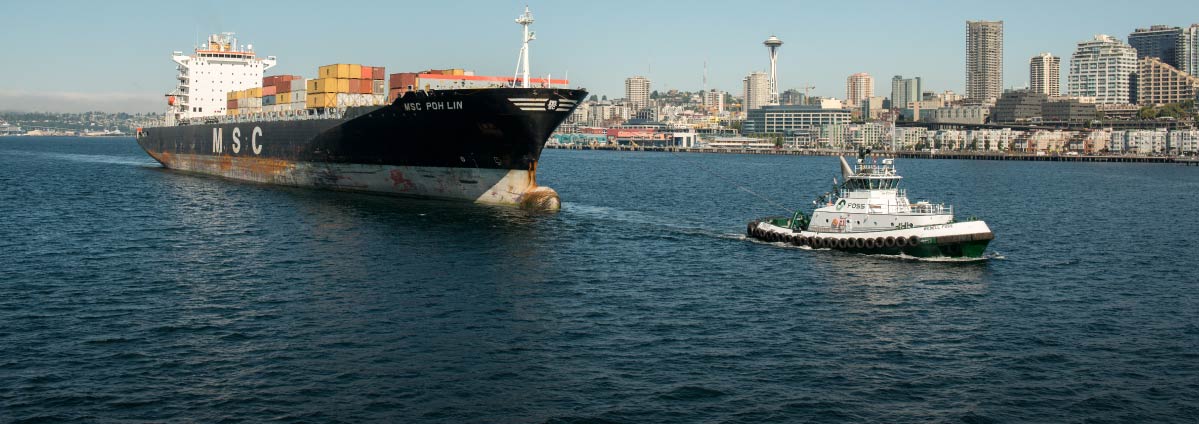 ;
;

